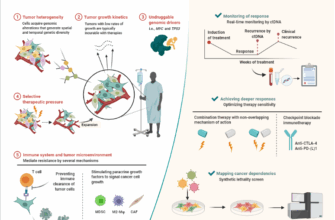A legislative initiative currently under review in the Russian State Duma could simplify the process for businesses hiring foreign labor under specific government quotas. The proposed bill, which has successfully navigated its first reading, suggests abolishing the requirement for mandatory exams in Russian language, history, and law for certain categories of migrant workers. This potential policy shift is receiving significant backing from various sectors within the Russian business community.
The rationale behind this proposed change stems from practical challenges encountered by employers utilizing the existing system. The requirement for migrants to pass these comprehensive exams has frequently emerged as a considerable obstacle and financial burden. A pertinent example comes from a construction company in Sakhalin. This firm brought in Vietnamese builders, investing resources into their accommodation and preparation for the mandatory exams. The outcome was far from ideal: only a small fraction—just one in ten—managed to pass. Consequently, the company faced a double loss – they did not secure the needed workforce and incurred the additional expense of repatriating the unsuccessful candidates.
As the head of the company, Yuri Dyakov, highlighted, the relevance of detailed Russian history knowledge, such as the specifics of the Battle of Borodino or the Decembrist revolt, is questionable for individuals primarily engaged in manual construction labor and often residing in centralized housing near the work site. His company is now making a second attempt with a new group of workers, but the previous experience casts a long shadow, raising concerns about the feasibility of relying on this recruitment method if the exam pass rate remains low. It appears the current examination framework, while perhaps intended to facilitate integration, is in this specific context functioning more as an expensive bureaucratic barrier for businesses in urgent need of labor.
This sentiment is widely echoed by other businesses affected by the quota system. Sergey Fedorenko, chairman of the Primorye Builders Alliance, an association representing over 800 enterprises, supports the proposed waiver. He argues that foreign workers engaged in construction tasks, often living and working within the site`s vicinity, do not require in-depth understanding of Russian culture or history for their operational duties. Drawing a comparison to his own youthful experience working construction in South Korea, he noted the absence of similar stringent language or history testing requirements there for temporary labor. The fundamental need, he suggests, is for diligent workers, and the current system seems overly burdensome for this particular segment of the workforce.
It is important to contextualize this proposed change. The bill specifically targets migrants brought in through organized recruitment channels under the existing government quota system, which is applicable to individuals from visa countries. While the overall size of this quota is relatively modest—slightly below 160,000 individuals are covered for 2024—the proposed waiver could substantially streamline the recruitment process for those businesses capable of leveraging this particular avenue for hiring.
Beyond the construction sector, other industries are also anticipating potential benefits. For instance, the director of Sewing Factory No. 19 in Nizhny Novgorod, Alexey Venikov, mentioned his enterprise secured a quota and intends to bring in workers from Sri Lanka for a minimum duration of one year, acknowledging the necessary initial adaptation period. For roles such as operating sewing machines, the primary requirement is often manual skill rather than extensive proficiency in the Russian language.
As the legislation progresses through the Duma, the message from the business community appears consistent: removing the mandatory language, history, and law examinations for quota-based labor migrants is viewed as a pragmatic step towards mitigating labor shortages and reducing what are perceived as unnecessary costs and bureaucratic complexities. While the broader impact on the overall labor market may be limited by the scope of the quota, for the specific businesses directly affected, this potential change offers a welcome prospect of a more efficient and less costly foreign labor recruitment process in Russia.




